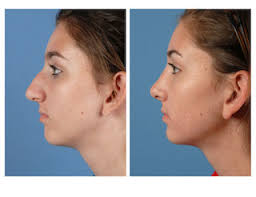Can Plastic Surgery cause health problems?
Plastic surgery is a range of procedures that reshapes or restores the form of the body. Although the term is usually associated with beautification procedures, it actually includes a broad range of practical operations including reconstructive surgery, craniofacial surgery, burn treatment, and more. Whatever the motivation, the decision to undergo surgery should never be made lightly — one must always review the potential risks and rewards.
The Risks of Plastic Surgery
Psychological and Social Risks of Plastic Surgery
To understand the psychological risks of plastic surgery, you must be able to answer a few questions about yourself. For example, how will you feel if your plastic surgery causes you to become a topic of gossip among your social circle? What if your partner exhibits signs of jealousy or insecurity because of your new look? What if you still feel “ugly” or inadequate after your “problem” has been surgically corrected?
The potential adverse psychological and social effects of plastic surgery have a lot to do with a patient’s pre-operative expectations and their pre-operative mental and emotional state. It’s important to understand that while plastic surgery can bring positive rewards, it will not change your life, the problems you have, or issues in your relationships. It is also important to understand that there is no such thing as physical “perfection.”
Body Dysmorphic Disorder
For some people, plastic surgery is an opportunity to fix a perceived flaw that has troubled them for years. The thinking goes, if we were only to get it fixed, we would be that much more beautiful.
However, people who strongly perceive imperfections within themselves may suffer from body dysmorphic disorder (BDD). This psychological disorder is characterized by an obsessive fixation on a perceived physical flaw. It affects 1.7% to 2.9% of men and women equally, usually begins in adolescence, and has been known to affect Hollywood actors and actresses just as much as regular folk.
In many cases, people with BDD have undergone several plastic surgeries but are chronically unhappy with the results. Ultimately, they wished they had never undergone them at all.
Health Risks
As with any surgery, plastic surgery carries risks. People have had surgery that has resulted in scars, disfigurement, or worse. While the worst outcomes are rare, such risks are nonetheless a reality.

The Most Common Dangers of Plastic Surgery
Local Anesthesia
Some unqualified practitioners cut costs by providing only local anesthesia, meaning you’re awake during the procedure. This loophole allows them to perform surgeries in a private office, rather than a legitimate, accredited surgical facility. The problem is that many operations require you to be fully under, otherwise you’re not just uncomfortable — you’re also at risk for complications.
Poor Results
The whole point of cosmetic surgery is to enhance your physical appearance. Sadly, many people who seek out these procedures desire the results so badly that they’re willing to overlook the fact that the surgery can damage their appearance further. It’s a terrifying prospect that happens to uninformed people all of the time.
One of the biggest dangers of plastic surgery is that you’ll end up looking like you had plastic surgery. The goal is to enhance your appearance in a natural way so people can’t tell you’ve had work done.
All too often, discounted plastic surgery leads to unnatural results and/or scarring, drawing attention to the part of your body you were hoping to improve in the first place. It’s the exact opposite of what you’re hoping to achieve. The simple truth is that discounted surgery is discounted for a reason. It’s tempting to be frugal, but surgery isn’t something to take lightly.
Infections
It’s crucial that cosmetic surgeons take proper steps to prevent plastic surgery complications. All surgeries are going to carry a risk of infection, but that risk can be drastically mitigated by going to a licensed practitioner.
During and after plastic surgery, you must receive proper wound care to ensure that you heal quickly without infections that could cause serious health problems. You can significantly reduce the dangers of plastic surgery by staying at a recovery center, but even the best recovery centers can’t undo shoddy work.

Nerve Damage
During a surgical procedure, it’s possible for nerves to be damaged or even severed; specifically in the case of facelift surgery. This causes numbness that can be permanent. It may also cause aesthetic problems such as the inability to form natural facial expressions. For example, drooping eyes are a common result of nerve damage following a cosmetic procedure.
Excessive Bleeding
Bleeding is bound to happen during and after surgery. It’s to be expected. However, one of the biggest dangers of plastic surgery is that you don’t receive proper post-surgery care while healing after surgery. Discount practitioners have one primary goal, and that’s to make money. Their business model is to keep people coming in as quickly as possible, and that means they need to make room for new patients.

Hematoma:
A hematoma is a collection of blood outside of a blood vessel. A hematoma can develop after surgery; this typically results in an area being swollen and bruised in appearance, with a pocket of blood beneath. In some cases, this is minor, but a hematoma can be large enough to cause pain and even decrease blood flow through the area. In the case of a large hematoma, the surgeon may choose to remove some of the collected blood with a syringe or other similar method.
Necrosis: Tissue death can be caused by surgery or by issues that arise after the procedure. In most cases, necrosis is minor or completely absent, and normal wound healing removes any dead tissue from the incision area.
General Risks and Complications of Cosmetic Surgery
Does Cosmetic Surgery have Risks? Yes, all invasive surgery has risks. The key is to understand them and do what you can to minimise or prevent them. But recognise some complications and surgery risks may occur randomly, despite having chosen the best surgeon, top hospital and best practice procedure and wound care. Despite evidence-based medicine, all surgery carries risks.
Potential Complications and Risks from Cosmetic and Plastic Surgery
- Cosmetic Surgery is invasive, meaning your skin will be incised surgically, and tissues either re-adjusted OR removed.
- ALL invasive procedures carry risks. Some risks can be mitigated; Other risks might occur randomly.
Ask your Surgeon for details of your specific surgical procedure risks or visit the procedure page you are interested in.
Understand these surgery risks by reading the materials provided and be sure you read everything before you sign the surgery consent form. Statistics indicate that the healthiest patients tolerate plastic surgery well, but a small number of patients may experience reactions to surgery or incur higher surgery risk rates or problems during their recovery.